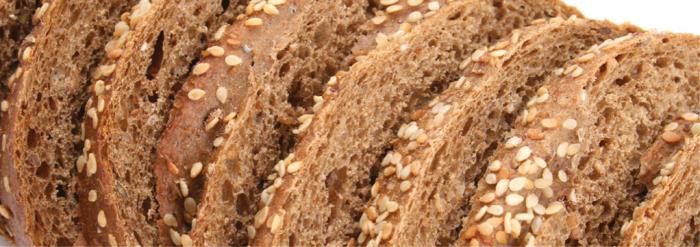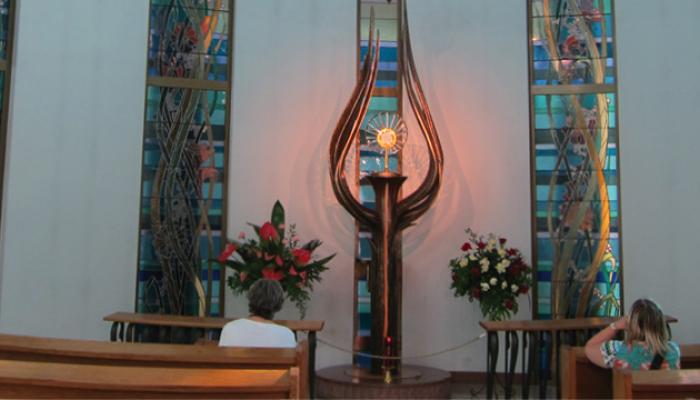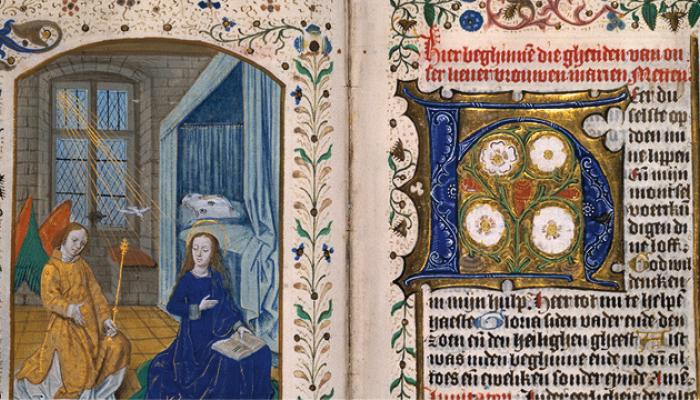
3.11 Çfarë lutje është Ati ynë?
Duke e quajtur Zotin "Ati Ynë" (Mt. 6:9-13) Mt. 6:9-13:Prandaj lutuni kështu: Ati ynë që është në qiell, u shenjtëroftë Emri yt! Ardhtë Mbretëria jote! U bëftë vullnesa jote si në qiell ashtu në dhe! Bukën tonë të përditshme na e jep sot! Na i fal fajet tona, sikurse ua falëm ne fajtorëve tanë! E mos lejo të biem në tundim, por na shpëto nga i Ligu!, ne shprehim se besojmë se Zoti na ka krijuar dhe për këtë arsye është Ati ynë. Ne lutemi për ardhjen e mbretërisë së Tij dhe tashmë mund të dallojmë shenjat e mbretërisë së Zotit në gjërat e mira që përjetojmë rreth nesh.
Kur themi "U bëftë vullnesa jote", ne i kërkojmë Zotit që vullneti ynë të përputhet me Vullnetin e Zotit. Në fakt, vetëm duke e bërë Vullnetin e Zotit ne mund të arrijmë të jemi me të vërtetë të lumtur. Në aplikacionin #TwGOD do të gjeni lutjen Ati Ynë në shumë gjuhë.
Cili është vendi i uratës Ati ynë në Shkrimet e Shenjta?
Urata Ati ynë është “përmbledhja e krejt Ungjillit” (Tertuliani), “lutja tejet e përsosur” (Shën Toma i Akuinit). E vendosur në qendër të Fjalimit në Mal (Mt 5-7) rimerr, nën trajtën e uratës, përmbajtjen thelbësore të Ungjillit. [KKKP 579]
Pse themi Ati “ynë”?
Falja “ynë” shpreh një marrëdhënie tërësisht të re me Hyjin. Kur i lutemi Atit, e adhurojmë dhe e lavdërojmë me Birin dhe me Shpirtin Shenjt. Në Krishtin ne jemi Populli “i Tij”, kurse Ai është Hyji “ynë”, qysh tani e përgjithmonë e jetës. Në fakt, themi, Ati “ynë”, sepse Kisha e Krishtit është bashkësia e një shumice vëllezërish, të cilët kanë “një zemër dhe një shpirt të vetëm” (Vap 4,32 ). [KKKP 584]
Çfarë përmban lutja e Zotit?
Ajo përmban shtatë kërkesa që i drejtohen Hyjit Atë. Tri të parat, janë më teologale, na çojnë drejt Tij, për lavdinë e Tij: është tipike për dashurinë të mendojë pikësëpari për atë që do. Ato na sugjerojnë se çfarë duhet të kërkojmë në veçanti: shenjtërimin e Emrit të Tij, ardhjen e Mbretërisë së Tij dhe realizimin e vullnesës së Tij. Katër kërkesat e fundit i paraqesin Atit zemërdhembshur mjerimin dhe pritshmëritë tona. Ato i kërkojnë Atij që të na ushqejë, të na falë, të na mbështesë në tundimet dhe të na lirojë nga i Keqi. [KKKP 587]
Çfarë do të thotë: “Mos na lër të biem në tundim”?
Ne i kërkojmë Hyjit Atë që të mos na lërë vetëm dhe në mëshirë të tundimit. I kërkojmë Shpirtit Shenjt që të dimë të shoshisim, nga njëra anë, mes sprovës që na rrit në të mirë dhe tundimit që na çon në mëkat e në vdekje, dhe, nga ana tjetër, mes të qenit të tunduar dhe pranimit të tundimit. Kjo kërkesë na bashkon me Jezusin i cili e ka mundur tundimin me lutjen e Vet. Kjo uratë nxit hirin e vigjilencës dhe të qëndrueshmërisë përfundimtare. [KKKP 596]
What are the words of the Our Father?
Our Father, who art in heaven,
hallowed be thy name,
thy kingdom come,
thy will be done
on earth as it is in heaven.
Give us this day our daily bread,
and forgive us our trespasses,
as we forgive those who trespass against us;
and lead us not into temptation,
but deliver us from evil.
For thine is the kingdom and the power and the glory
forever. Amen.
In Latin:
Pater noster, qui es in caelis;
sanctificetur nomen tuum; adveniat regnum tuum,
fiat voluntas tua, sicut in caelo et in terra.
Panem nostrum quotidianum da nobis hodie;
et dimitte nobis debita nostra,
sicut et nos dimittimus debitoribus nostris;
et ne nos inducas in tentationem;
sed libera nos a malo.
Quia tuum est regnum, et potestas, et gloria
in saecula. Amen.
The Our Father is the only prayer that Jesus himself taught his disciples (Mt 6:9–13; Lk 11:2–4). That is why the Our Father is also called “the Lord’s Prayer”. Christians of all Christian denominations pray it daily, both in the liturgy and privately. The conclusion, “For thine is the kingdom … ” is mentioned as early as the “Teaching of the Twelve Apostles” (Didache, ca. A.D. 150), and so it can be added to the Our Father. [Youcat 511]
Where do we get the confidence to call God “Father”?
We can be so bold as to address God as Father because Jesus has called us to a close relationship with himself and made us children of God. In communion with him, “who is in the bosom of the Father” (Jn 1:18), we are privileged to cry, “Abba, Father!” [Youcat 515]
How are we changed by the Our Father?
The Our Father allows us to discover joyfully that we are children of one Father. Our common vocation is to praise our Father and to live together as though “of one heart and soul” (Acts 4:32).
Because God the Father loves each of his children with the same exclusive love, as though we were the only object of his devotion, we too must get along together in a completely new way: peacefully, full of consideration and love, so that each one can be the awe-inspiring miracle that he actually is in God’s sight. [Youcat 517]
Why does man not live on bread alone?
“Man shall not live by bread alone, but by every word that proceeds from the mouth of God” (Mt 4:4, citing Deut 8:3).
This passage of Scripture reminds us that men have a spiritual hunger that cannot be satisfied by material means. One can die for lack of bread, but one can also die because one has received bread alone. In a profound sense we are nourished by the one who has “the words of eternal life” (Jn 6:68) and a food that does not perish (Jn 6:27): the Holy Eucharist. [Youcat 523]
What does it mean to say, “Deliver us from evil”?
“Evil” in the Our Father does not mean a negative spiritual force or energy, but rather Evil in person, whom Sacred Scripture knows by the name of “the tempter”, “the father of lies”, Satan, or the devil.
No one can deny that evil in the world is devastating in its power, that we are surrounded by devilish suggestions, that there are often demonic processes at work in history. Only Sacred Scripture calls things by their name: “For we are not contending against flesh and blood, but against the principalities, against the powers, against the world rulers of this present darkness” (Eph 6:12). The petition from the Our Father “deliver us from evil” brings all the misery of this world before God and begs God Almighty to free us from all evils. [Youcat 526]
Why do we end the Our Father with “Amen”?
Christians and Jews alike from ancient times have concluded all their prayers with “Amen”, thereby saying, “Yes, so be it!”
When a person says “Amen” to his words, “Amen” to his life and his destiny, “Amen” to the joy that awaits him, then heaven and earth come together and we are at the goal: with the love that created us in the beginning. [Youcat 527]
Në buzët tuaja, ose të paktën në thellësitë e zemrave tuaja, qëndron lutja e Zotit që nis me fjalët "Ati ynë". Lutja që zbulon Atin dhe në të njëjtën kohë pohon se njerëzit janë vëllezër dhe motra me njëri-tjetrin - dhe krejt thelbi i të cilit është në kundërshtim me të gjitha programet e mbështetura në parimin e armiqësisë ndërmjet qenieve njerëzore në çdo formë. "Ati ynë" i largon zemrat e njerëzve nga armiqësia, urrejtja, dhuna, terrorizmi, diskriminimi - nga situatat në të cilat shkelet dinjiteti dhe të drejtat e njeriut. [Papa Gjon Pali II, Dilecti Amici, nr. 15]





